Killer daffodils, a carnivorous armchair and the debut of The Master.
Gallifreyan CIA Agents force The Doctor to enter The Matrix where Skeletor is ready to ambush him in a quarry
Podcast: Play in new window | Embed
Inexplicably intercepting a telepathic vision of the assassination of the Gallifreyan president, The Doctor arrives at the Panopticon, impersonates a parliamentary dignitary and rushes to the scene of the crime to be. Alas, he is on time and too late, and just as he handles a conveniently placed rifle, a shot is fired and the president gets a window-seat on the express train to Deadsville.
Facing torture and vaporisation without a trial at the hands of the civilised Time Lords, the companion-less Doctor does the only logical thing: he runs for office, thus buying himself some time to catch the real baddies and clear his name. Does this conspiracy reach all the way to the top? Will The Doctor have to enter The Matrix, where he’ll be subjected to maniacal miniature trains, a crocodile and guerrilla warfare? Does The Master have something to do with it? Stay tuned to find out.
And here’s the comparison of Peter Pratt and Geoffrey Beevers as The Master:

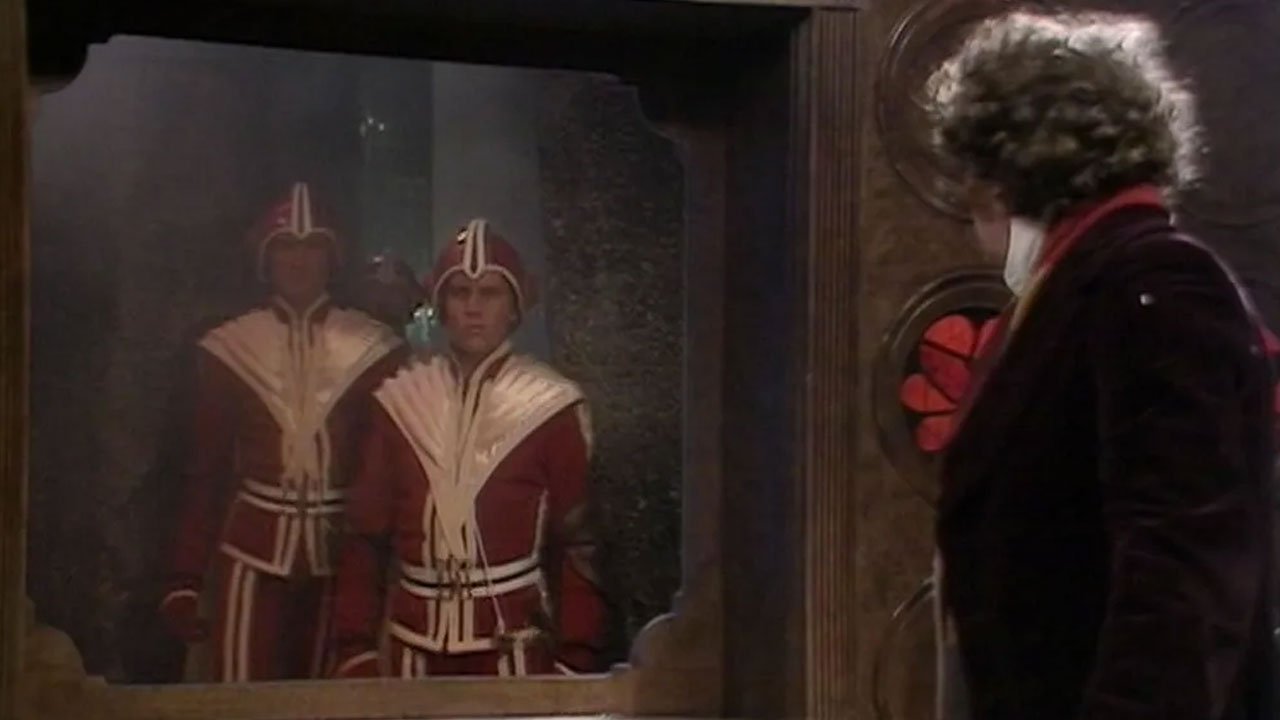



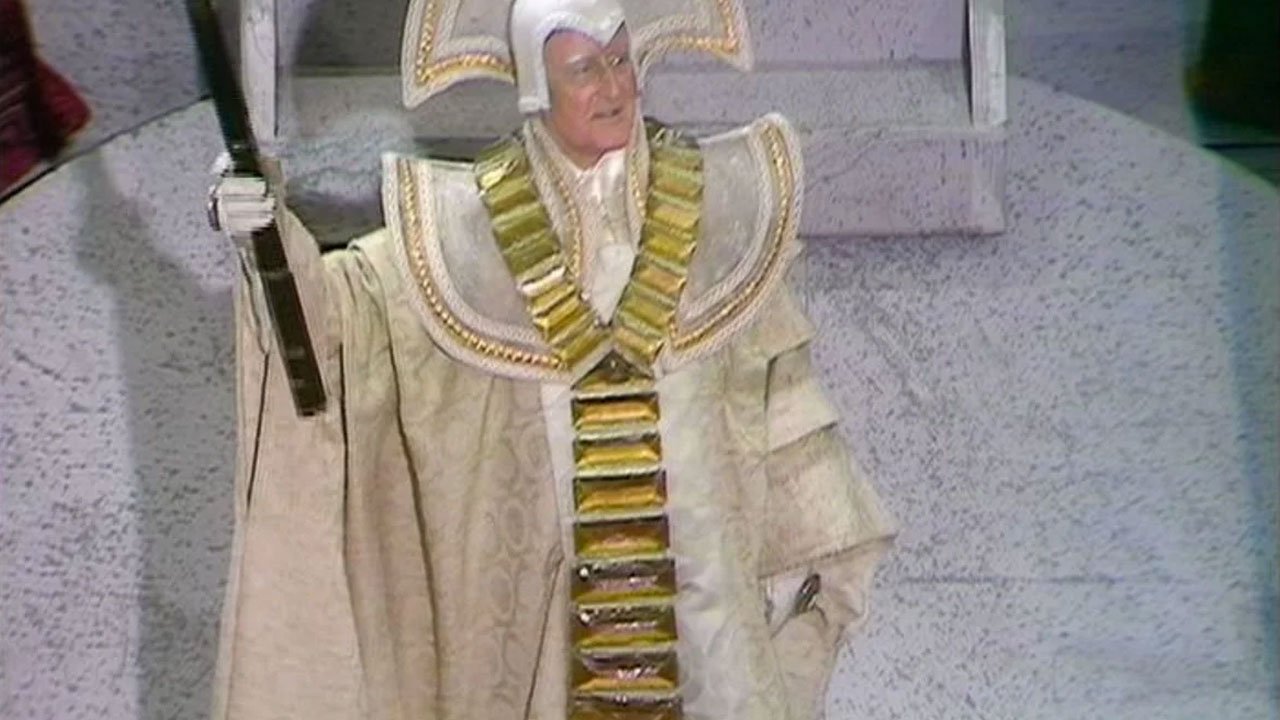

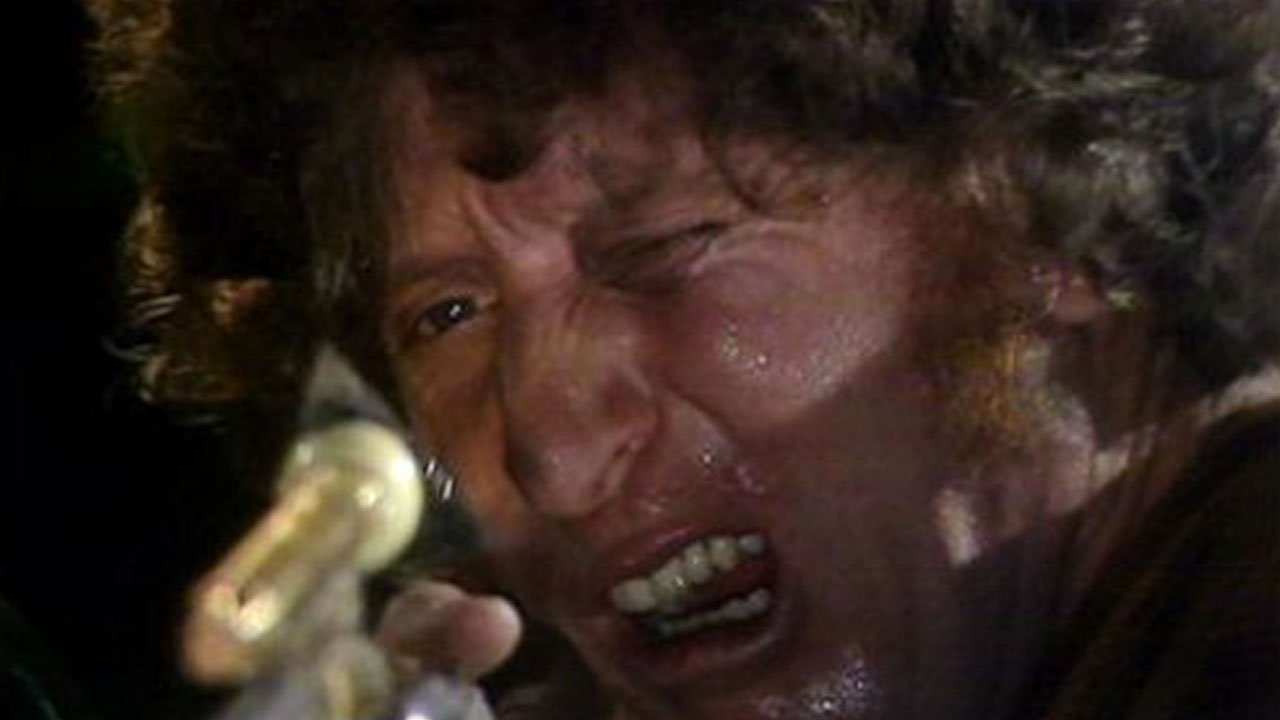



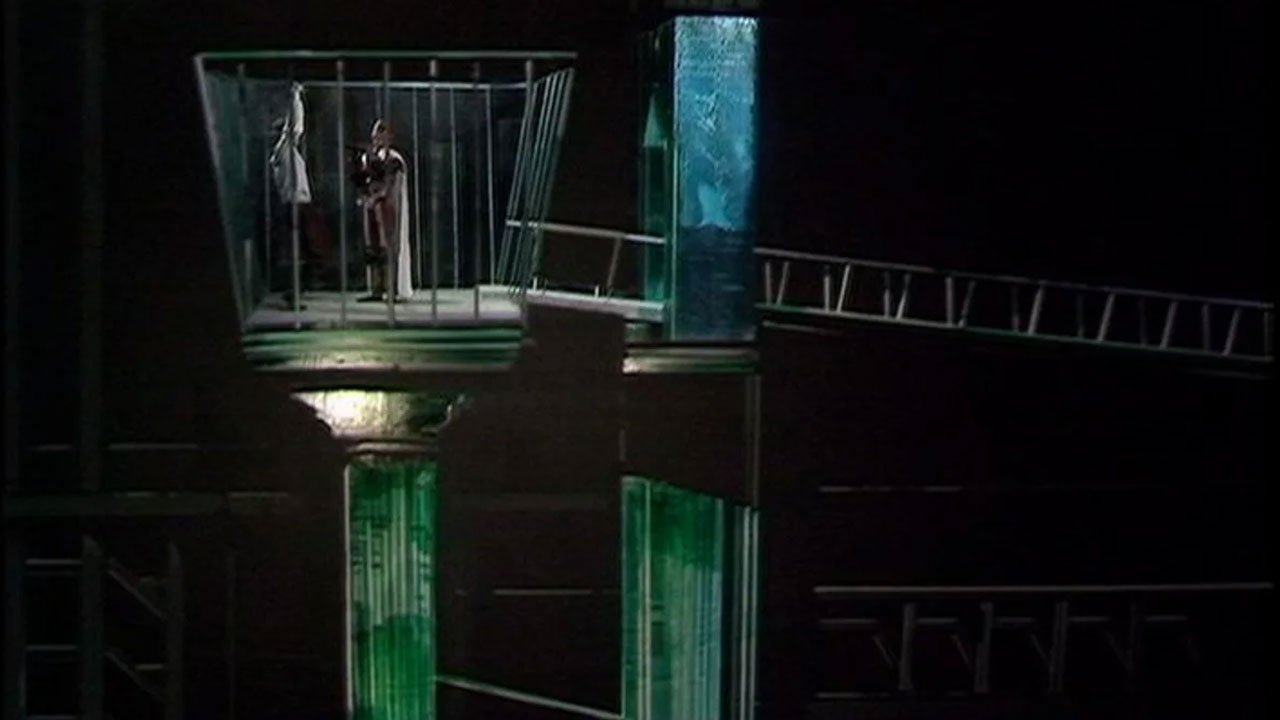

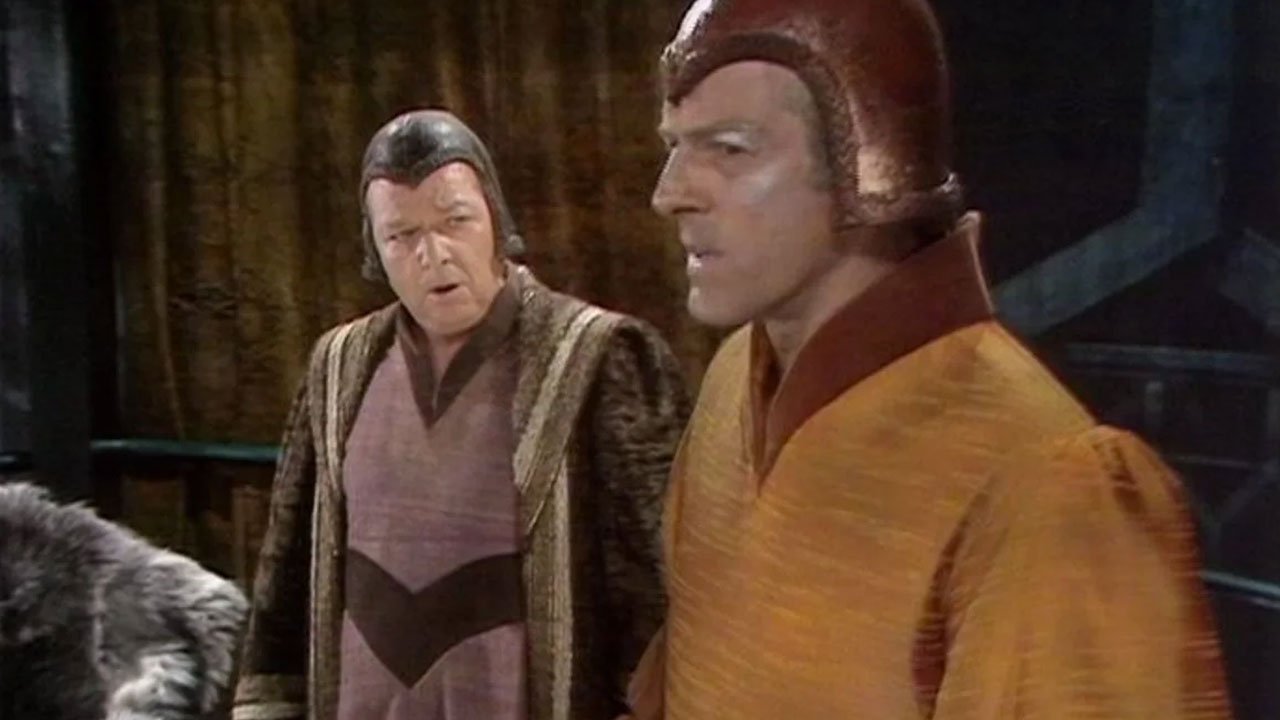

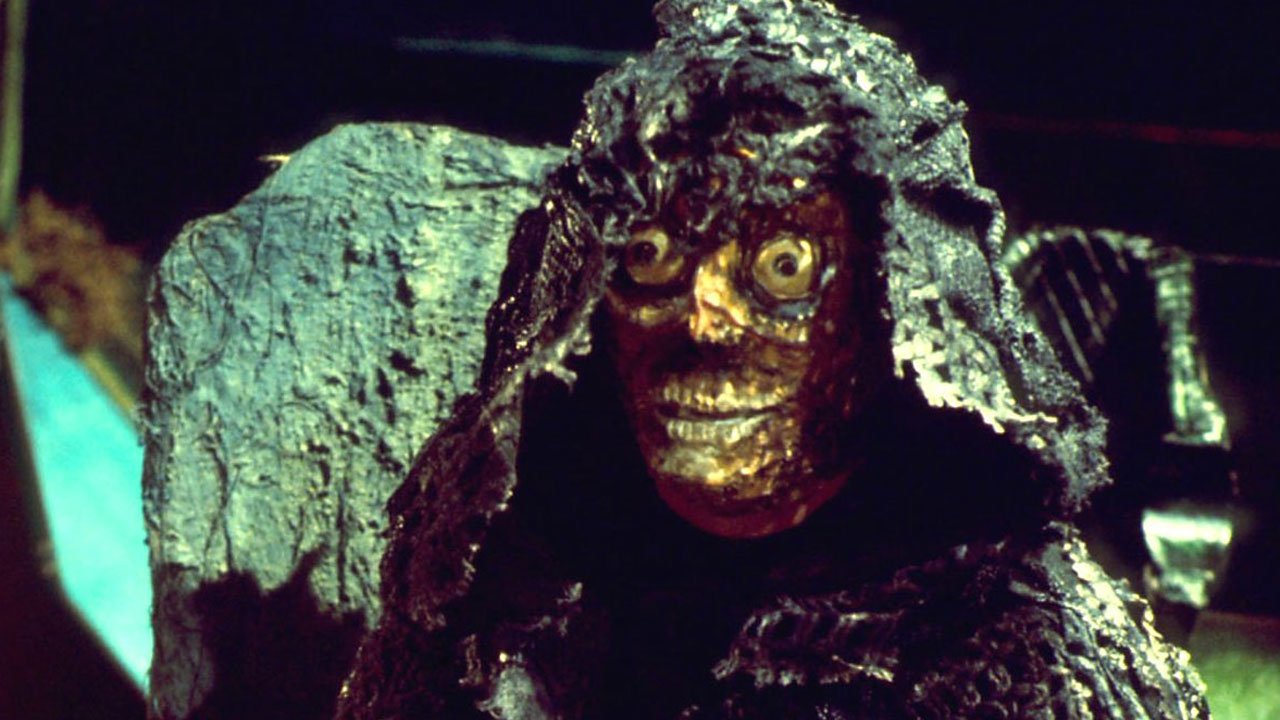



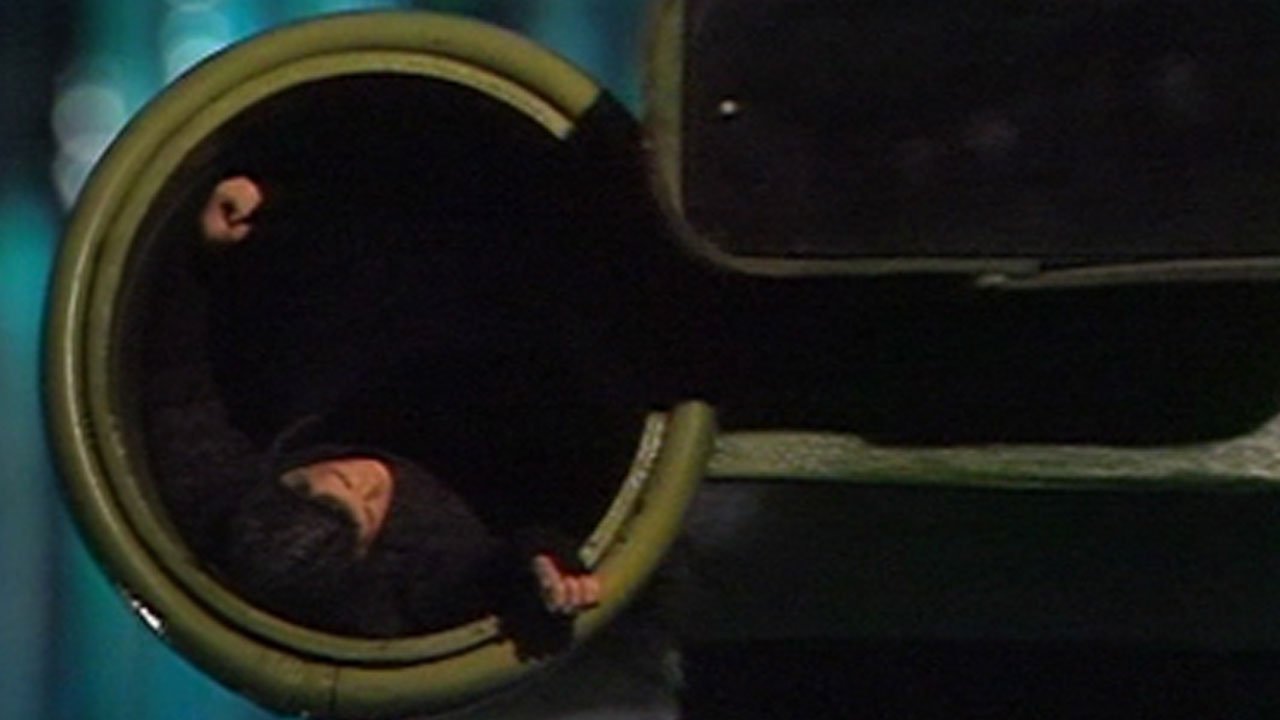

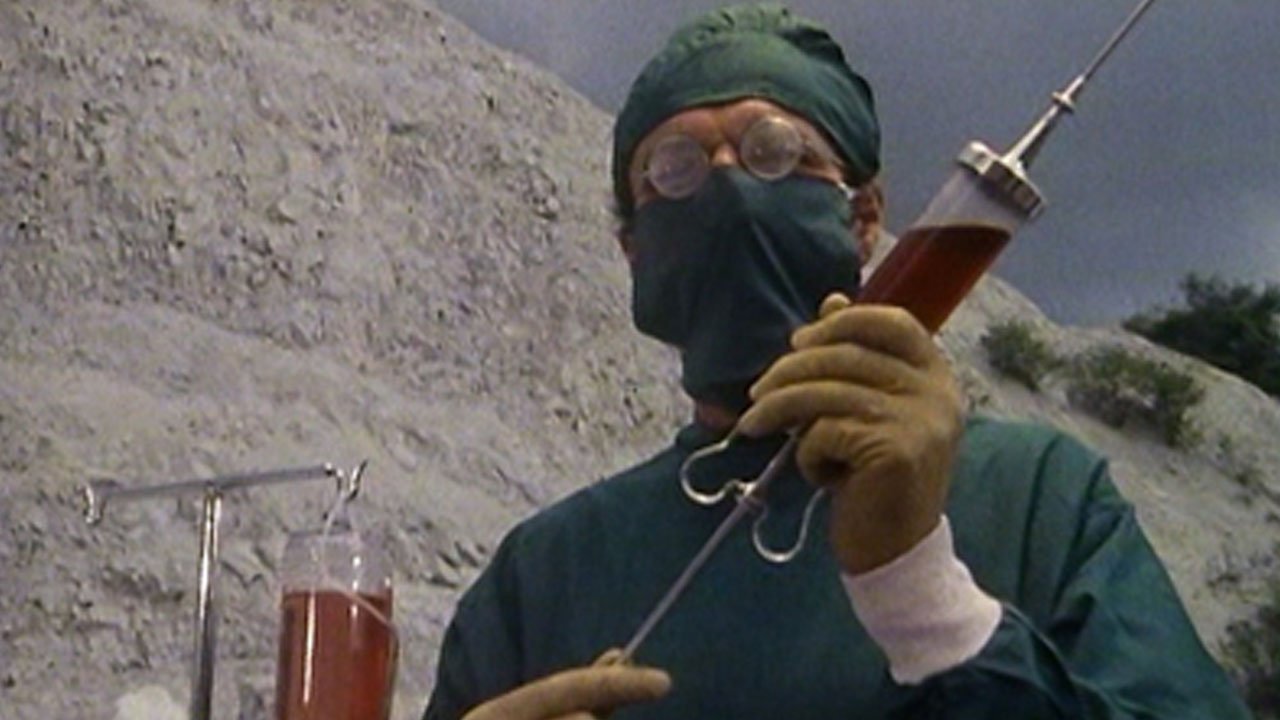

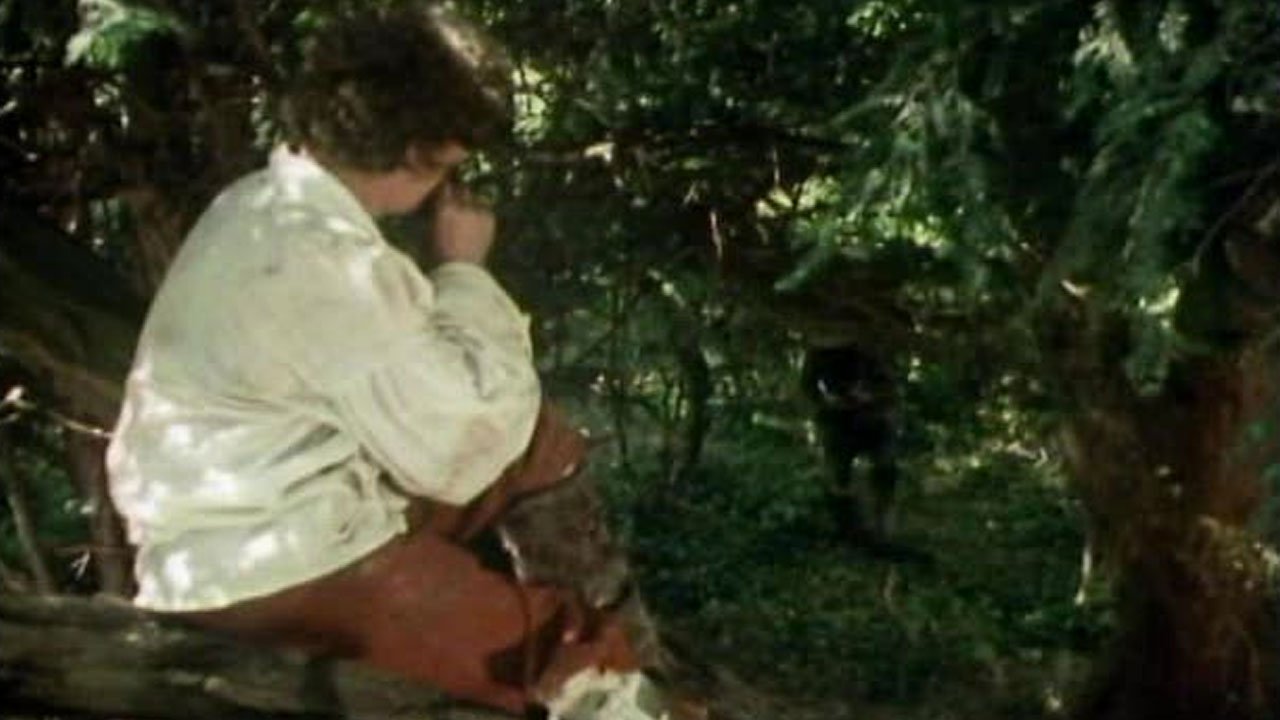

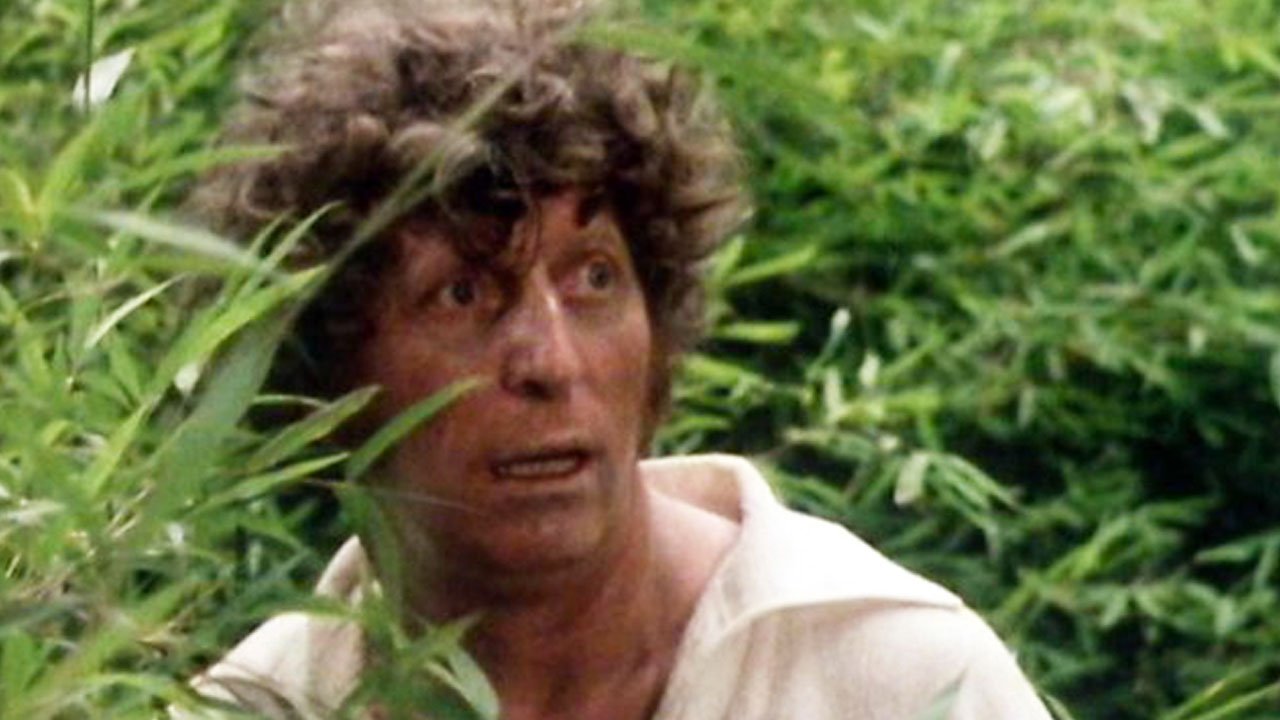

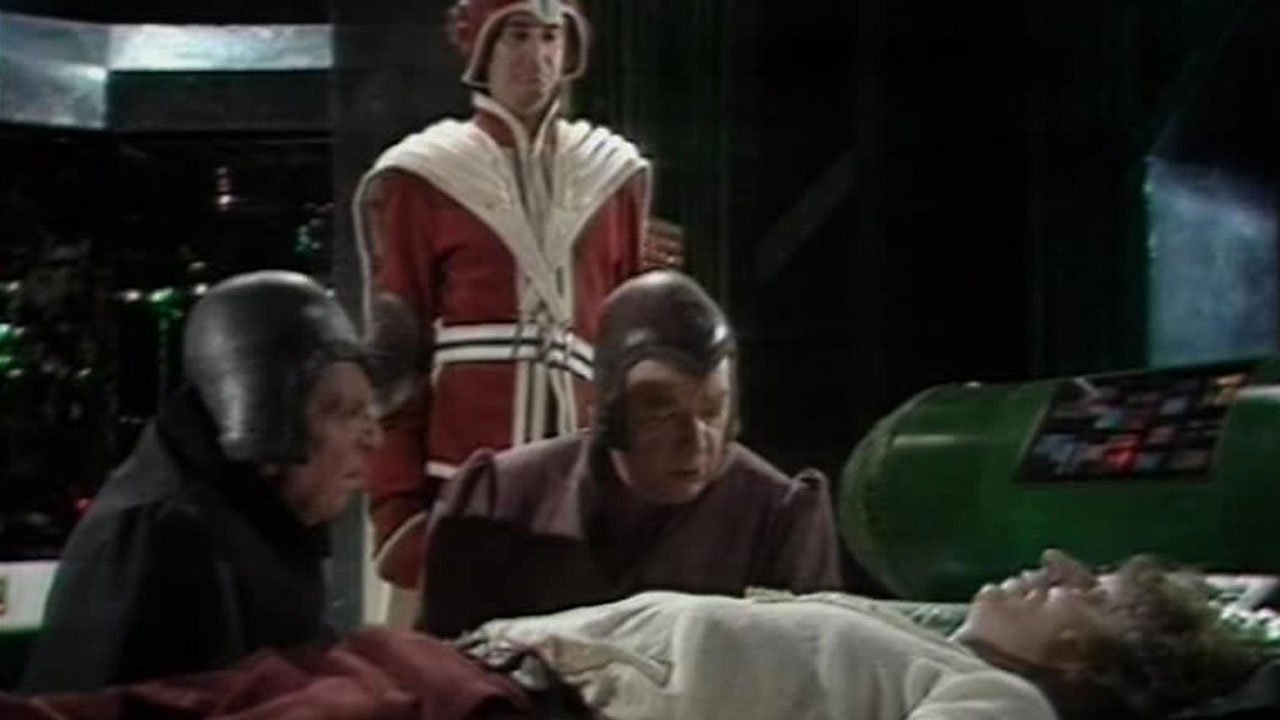

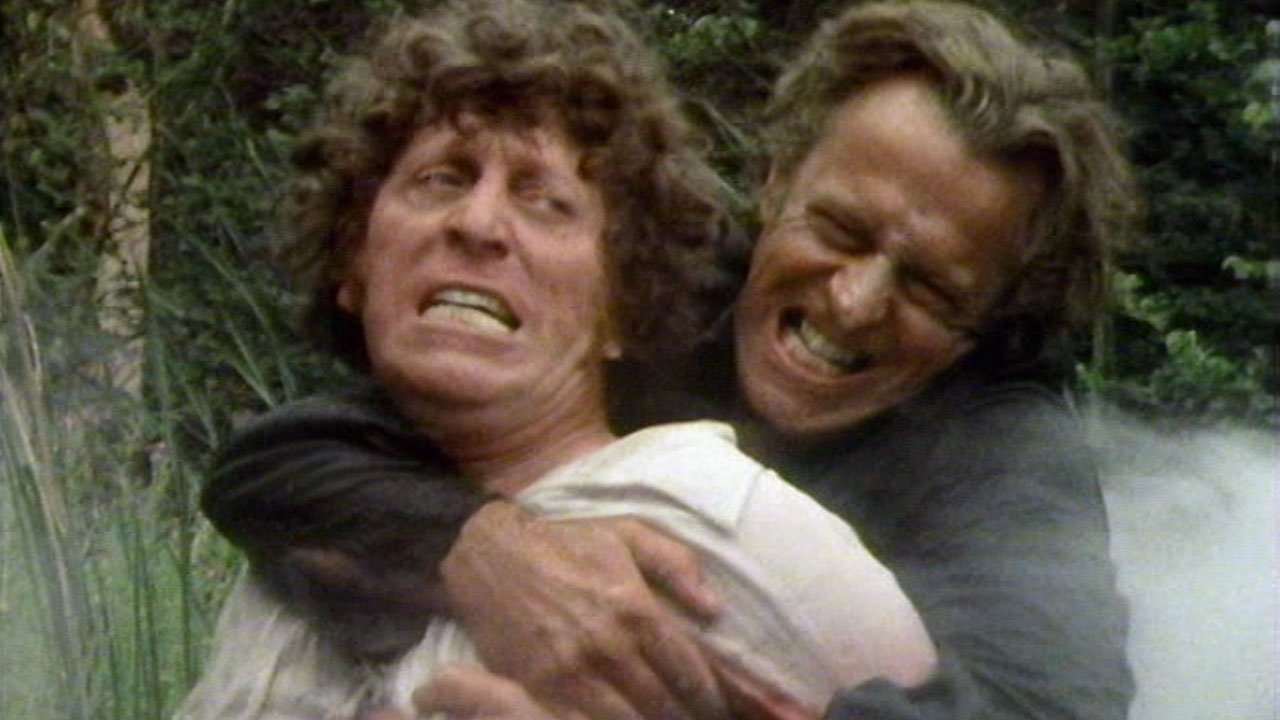



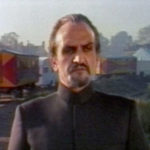
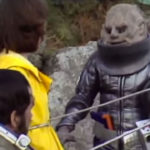
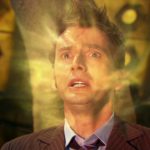







Tom Baker wanted the Doctor to travel alone after Sarah Jane’s departure. An impossible, predictive vision of the Lord President’s murder brought him home to a reimagined Gallifrey as power changed hands. The Doctor’s return was pivotal to the story and the reason Baker’s ambition was never realized.
As Time Lords donned color coordinated, ceremonial robes to watch the presidency change hands, the Doctor eluded pursuit and made his way to the Panopticon for the ceremony. After his pursuers learned the Celestial Intervention Agency ended the Doctor’s exile on 20th Century Earth. he became the prime murder suspect and its chief investigator.
The Doctor‘s allies and adversaries were all Time Lords. Cardinal Borusa, his teacher, represented governmental need for reasonable explanations. Presidential heir apparent, Chancellor Goth, was an ambitious politician who gave a speech while dying instead of answering a question. Castellan Spandrel was a bureaucrat and policeman, warned of the impending murder while his hapless guard commander, Hilred, led a depleted force of ceremonial guards trying to arrest the Doctor. Co-Ordinator Engin, Spandrel’s assistant, gave him and viewers necessary exposition. Commentator Runcible covered the president’s death and fainted upon discovering a dead technician’s shrunken body. Finally. the Master was a brilliant, renegade Time Lord whom his bureaucratic people implausibly forgot about after his file vanished. He brought the Doctor back to Gallifrey, where, to him, technology was antiquated and his black-cloaked, walking corpse represented seething hate for the Doctor and Time Lords.
The crisis ‘The Deadly Assassin’ detailed was also an exercise in world building, telling us about Time Lord politics and that guards chased vandals called Shobogan. The Capitol was built in “the Old Times”, when Rassillon engineered the Eye of Harmony with relics like the Sash and the Key. Consequently, Time Lords enjoyed 12 regenerations after death. Afterwards, all Time Lord knowledge was gathered into a Matrix used to monitor Time Lords and predict the future.
As the story unfolded, Time Lords transformed from godlike observers refusing to interfere in other planets’ affairs, into ridiculously vulnerable, corrupt and self important bureaucrats. The Doctor’s investigation took him into the Matrix, where he became trapped in a nightmarish dream while hunting and being hunted by the murderer. Afterwards, his climactic struggle with the Master would threaten the Time Lords’ supremacy and the Universe itself.
This icon in the Doctor Who pantheon does indeed stand up to its reputation. Until now the Time Lords come across as virtually omnipotent, but this story casts much doubt on that premise, making them infinitely more dimensional. Indeed we are led to believe that in many ways they are not only stagnant, but have actually become somewhat decadent. They have forgotten some of their own past technology, and in some ways have fallen behind other races in the universe. This point will play an important role the next time we return to Gallifrey.
Tom is perfect in this episode, carrying the entire series single-handedly. Engin and Spandrel are, while not the most outstanding actors, incredibly enjoyable foils. The Master’s makeup, lack of mouth movement and emotion notwithstanding, is incredibly scary and intimidating. This is Phantom of the Opera, Dreamscape and The Black Hole rolled into one story.
It’s not without its flaws. It’s ironic that I get somewhat bored during the action scenes within the matrix. Not much, but I’m certainly less interested than the rest of the story. There are also only three real candidates that could be the Master’s accomplice, and it wasn’t going to be Runcible.
Regardless, I’ve seen this story countless times and I’ll be happy to watch it again soon. It’s a great way to evolve the Master/Doctor feud and establish Time Lord mythology at the same time. Borusa gave it a 9 out of 10. I’ll give it a similar 4.3 out of 5.
The Deadly Assassin is iconoclasm writ large. As an entire story unfolds on the Doctor’s home planet, Robert Holmes remoulds Gallifrey in a form peculiarly his own, and whatever we thought we knew about the Time Lords, we are forced to revise.
I suppose bullet points would be good for this, because there’s a lot to talk about:
What I liked:
– Tom Baker is at his finest
– Holmes’ version of Gallifrey is definitely the definitive version of Gallifrey. This reinvention needed to be done.
– The Master was fantastic (the makeup was especially gruesome. Why wasn’t this version of the Master in End of Time? That would make that story just a little better!)
– We get to see more of Gallifrey, which is always nice
– Many surprises (SPOILERS)
– Four part arc (perfect length)
– The Time Lords are as interesting as they were in The War Games (but not quite)
– The detail given to Time Lord society
What I didn’t like:
– Some old lady tried to get Doctor Who cancelled because of this story.
– The Doctor has no companion, which really doesn’t work as well as it should.
– The reinvention of the Time Lords sort of takes away their power and mystery a little bit.
– The scenes in the Matrix weren’t super “Doctor Who” at all. This is not an action movie!
– Goth is played by Bernard Horsfall, but it’s not the character from The War Games (as far as we know). Continuity much?
Overall, I enjoyed this story even though it almost got Doctor Who cancelled. Very violent and bloody, and the Master’s makeup was just terrifying to look at. I’m sure that sent kids scurrying behind the sofa in 1976. Definitely perfect for a story released around Halloween that year. 4.40/5
Things I Liked:
– The opening scroll. This is new!
– The Celestial Intervention Agency (‘CIA’). This is taking the piss, right?
– Darth Sidious Master!
– John Rambo Doctor!
– Matrix stuff. Sweet Jesus, this is brutal. Hard to believe the cartoony Android Invasion was a only a few stories back.
– Stuffy, stagnating TimeLord civilisation.
– The Eye of Harmony! Also appears in the Seventh Doctor’s 1996 TV Movie!
Beefs:
– The Master’s rubbish mask. I can’t take those goggly eyes seriously. What’s wrong with a bit of decayed face makeup? CGI Special Edition please with Ian McDiarmid superimposed. And the laughing in the clock face at the end, what the hell was that?
– A lot of Timelords kick the bucket – the President zapped, traitor Goth fried, a bunch of Timelords shrunk – yet none regenerate. How do the teeny tiny Timelords die, are they squished?
– Funniest moment: chalk outline of the zapped President.
4.1/5 teeny tiny shrunken Timelords. Awe, and yuk!
The Deadly Assassin is in my top 10 Classic Who stories, and a great example of the darker direction in which Hinchcliffe and Holmes took the series. We get to see Gallifrey properly for the first time, and it doesn’t disappoint. The Time Lord costumes are wonderful, and whilst the guards’ outfits look impractical, they make sense given that they perform a largely ceremonial purpose.
The story gets away with the absence of Sarah Jane by co-opting Engin and Spandrell as temporary companions, but I don’t think this would have worked as a permanent feature, even though Tom Baker wanted to go solo. Someone needs to play the role of the audience and, as Bagels once pointed out, the Doctor needs someone to tell him how clever he is.
One thing I did notice whilst re-watching this story is that there are no female characters on screen, with the computer voice being the only female actor. I couldn’t find out whether this was a deliberate decision, but it’s the only thing which lets the story down. Well, that and the fact that Time Lord security is so lax that anyone can take weapons into Presidential ceremonies…
Overall, Borusa may have given the Doctor 9/10, but I think he deserves full marks for this. 5/5
For this story to feature the Dr without a regular companion worked only well for the one story it was clear the Doctor needed another new assistant shortly after Sarah Jane Smith had gone back hoe to 20th century Earth, it would never in millions, billions and trillions of years had worked to have the Doctor travelling in his TARDIS without a companion beside him when he took the Tardis and fled Gallifrey he had one assistant with him his granddaughter Susan to have only one assistant is wiser and better in millions and billions of ways than the Dr having no assistant or several assistant at anytime in who,s history. I suppose if the planned final showdown between the 3rd Dr and the Master had happened had Delgado not died this serial and other post Roger Delgado Master stories would never have been made and we possibly may never have got any other actors playing the Master and also no other Drs, ever meeting the Master which would have been a darn shame in millions, billions and trillions of ways to have lost the Master as a great villain and a great enemy to Dr Who,s history. The Master may have ended upas only a Jon pertwee, enemy and never encountered any of the later Drs whatsoever a shame had that been the case.